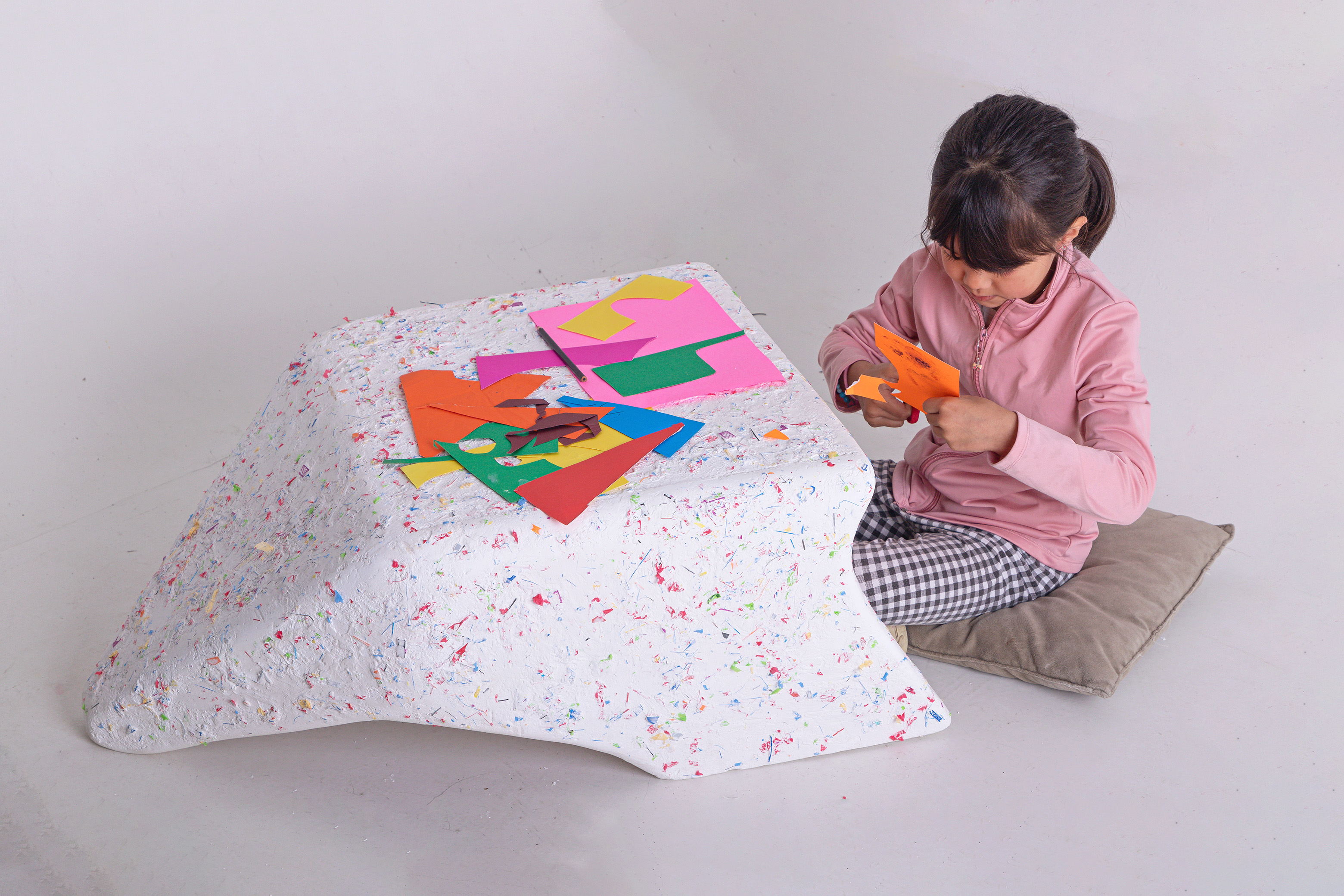2023 - 2023-新星奖
巴西,库里奇巴

LUISA URFALI
巴西 / 库里奇巴
专业组
Luisa Urfali, intern at the multi-award winning Furf Design Studio. Design student at PUCPR, with a specialization in Furniture and Product Design at the European Centre. In 2019, she won the international Shenzhen Design Awards with the Fala project, an urban furniture for suicide prevention. In 2021 she won the Brasil Design Awards with the Visi project, an adapter for children with low vision. Recently in 2021 she performed her first TEDx-The power of a speech. And in 2022 she was awarded Gold in the product design category by the Bornancini Prize. She believes that with Design it is possible to transform lives and take care of people.
RAY - Multifunctional Furniture That Promotes Sustainable Ethics Among Children
参赛组丨专业组
Ray is a multifunctional piece of furniture made of recyclable plastics taken from the coast of Santa Catarina in Brazil, with a structure inspired by the flapping of the wings of the Jamanta stingrays, which are a symbol of Latin America. Its objective is to be a transitional toy and creator of a 'potential space' for the child, where the paradox should not be judged, allowing the flow of his imagination with the possibilities of moving, rotating and rocking the furniture. Ray helps to preserve the mental and emotional health of the child in the transition from the family environment to living with other children in the school phase. In addition, the furniture brings a new aesthetic, with a new ethics of conscious consumption, in order to instinctively teach about environmental awareness and reduce consumerist impact. By 2040, the amount of polymers dumped into the oceans each year will triple, reaching 600 million metric tons.

In 2019 Brazil was the fourth largest generator of plastic waste in the world (WWF). The children's toy industry is the biggest consumer of this material, which takes years to decompose and ends up in the oceans. Therefore, Ray is a toy made with plastics taken from the coast by several NGOs that already do this work and can now dispose of the residue in a more symbolic way. The piece of furniture instinctively introduces the concept of sustainable economy to children, who are potential agents for transforming environmental awareness. Being a transitional object, it helps schoolchildren to release the stress caused by their first contact away from home by providing what the psychoanalyst Winnicott calls potential space, where imagination flows freely. Ray provides each child's potential space and gives them the freedom to move, rotate and rock the toy, exploring its spaces and ways of using it as they wish. Freedom, fantasy and intuition in the act of playing provide the child's 'potential space', which, according to Winnicott, is a field of action full of creativity and plasticity. To emphasize the beauty of plastic, the shape of the piece of furniture is inspired by another potential space in life: the singular "flapping of the wings of the Jamanta ray". It is a versatile piece of furniture that can be used indoors and outdoors, made of recyclable plastic to give it a unique texture and a playful character, instinctively getting them used to this new sustainable aesthetic. Educating and rooting less materialistic practices has become difficult. Working from childhood on sustainable values through the complementarity between critical environmental education and family education. According to psychology, the most effective method and the best time to teach ethical values to a child is in childhood. In this sense, Ray provides children with various ways of interacting and attributing their own meaning to it. Thinking about relieving the stress of early latency phase changes. And instigating children's interest in products with new appearances and textures provides a future social impact: the conscious choice of paths and sustainable consumption.


